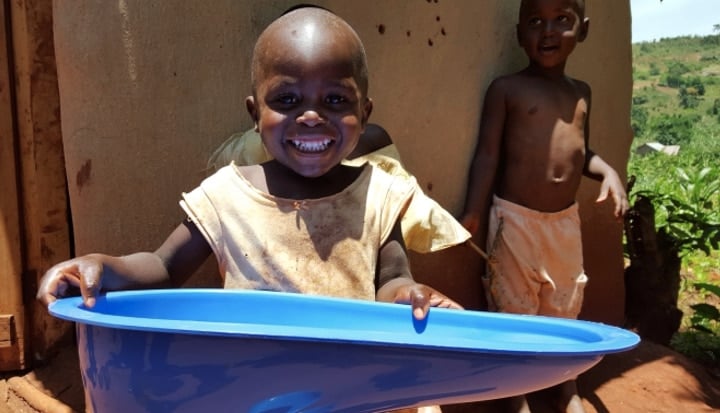Japan’s maker of water and housing products, LIXIL, has invested in a sustainable social business – SATO – to help bring affordable toilets to those that need them. In 2018, their work on SATO led them to a new partnership, “Make a Splash! Toilets for All.” with UNICEF to tackle the global sanitation challenge. How did this partnership evolve and what has been learnt along the way?
Key learnings from this partnership:
- Share a vision and have both organisations commit to this up front;
- Develop the business case: create true value for both society and business;
- Adopt a bottom-up, co-creation approach to programme development
- Take time to understand organisational differences i.e. in decision making, time frames and communication cultures
- Allow for the testing of new for-profit social business models
BFP: Why do you think this partnership is special?
JM. Even in 2019, 2.3 billion people around the world live without access to basic sanitation. And thus, what began in 2012 with an affordable, innovative toilet called SATO has since developed into a full-fledged social business, which today operates with a P&L, sales targets, supply chain management, and marketing. But unlike our traditional businesses, the SATO business has both financial and social targets. 1.8 million SATO products have already been shipped worldwide, helping to improve the lives of approximately nine million people so far. The partnership with UNICEF now provides us with the opportunity to scale up our work.
GS: Together, we aim to demonstrate the business opportunities available in achieving universal access to basic sanitation, by creating demand for sanitation products, improving supply of such products, and supporting opportunities for affordable finance for the bottom of the pyramid. LIXIL is also showing leadership by demonstrating that there is a business model in the waste sector, not just in toilets, but in the wider sanitation economy, improving opportunity and prospects in the communities that we support.
BFP: Why did it make sense to deepen this relationship?
JM: We, at LIXIL, believe in a universal truth – that everyone dreams of a better home, and our job is to make products and offer services that make that home, which includes it being safer, more comfortable, and more convenient. And this includes the homes of families in rural villages who are building their first basic toilet. We first started to align activities in countries where there were common interests. In Kenya, for example, UNICEF and LIXIL both worked in Kitui County where UNICEF was supporting the local government with sanitation promotion projects. LIXIL trialled SATO products in Kitui, and in some villages almost all the households opted to use SATO to improve their latrines. These types of positive experiences lead to both UNICEF and LIXIL deciding to collaborate more.
GS: In 2017, UNICEF took the decision to identify opportunities where companies’ core business could be instrumental in achieving our ambitious goals for improving the lives of children. We had worked with LIXIL on projects since 2013 and believe that this partnership is now a great example of the shared value approach—where we work together to create value both for society and business. The programmes are envisaged to attract the whole industry and broaden the supplier base.
BFP: You have spent a lot of time designing the programme bottom up – with on the ground insight. Why is this helpful?
JM: One of the key factors has been the ability to develop the work plan based on a co-creation process where both teams discuss and decide where the focus will be, geographically, and what the programs could look like in those countries. Rather than have the implementation plan be decided in an HQ somewhere, the teams on the ground will have more say in what we do and where. When our sanitation experts on the ground share the same goals, a lot can happen.
GS: Coming together on the ground to explore what works in each context has helped UNICEF understand some of the barriers that the private sector faces in providing affordable solutions where they are needed most. These issues range from product standards and regulation, the stability of markets, financing local sanitation entrepreneurs, as well as local capacity to deliver sanitation services. Addressing some of these issues could potentially unlock markets for everyone.
BFP: How have you navigated the differences between a corporate and supranational organization?
JM: While both organizations are global, LIXIL is probably more centralized and UNICEF more decentralized. So there is an impact on how decisions are made, who needs to be consulted and involved. We also have different cultures, so it is important for both organizations to try and stretch to meet somewhere outside of our comfort zones. For example, speed of decision-making was a challenge in the beginning, but it has gotten better. Being transparent, honest, and realistic with your partners, and collaborating on win-win situations, helps to develop concrete activities that we can work together on.
GS: We are indeed different, but we share the same goal – basic sanitation for all, and strong and sustainable sanitation markets operating in a well-functioning sanitation economy. We are learning that just because there is need, it is not always possible for a private sector company to invest – we need to help show the business case. And, we need to focus our joint work on those key areas that we think can have the biggest impact, based on what LIXIL (and other partners) are able to deliver.
JM: It all comes down to frequent communication and embracing a spirit of positive intent. When two organizations work together, it’s inevitable that they will encounter sticking points, especially in the beginning while we are still learning about each other and our activities are still being developed. To solve this, we need to communicate frequently and regularly, to understand each other better and agree on the way going forward. We have built therefore a robust governance and operating rhythm, to ensure that we are connected at the right level, at the right frequency, and we have pre-agreed how we will escalate and/or resolve pain points.
Find out how you can get involved in the sanitation challenge by contacting **@li***.com










